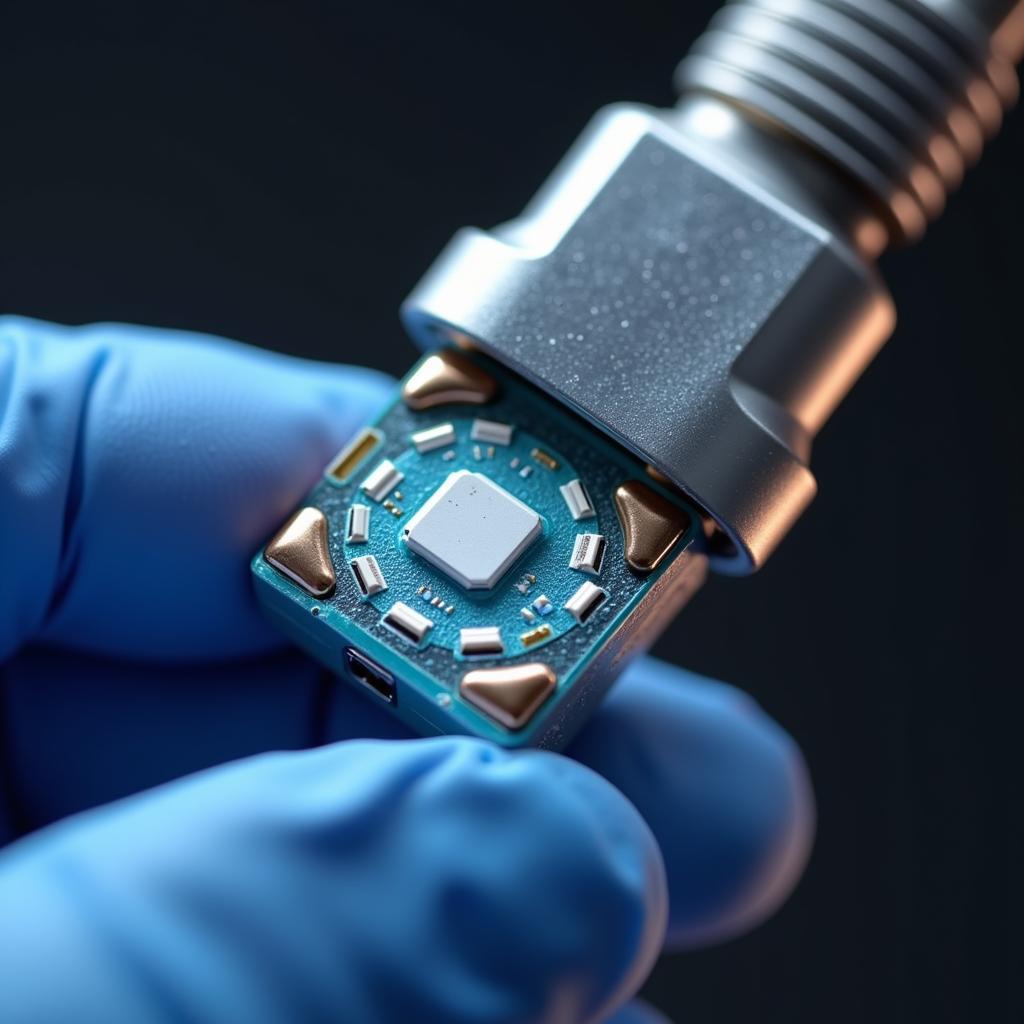Atomic batteries, also known as nuclear batteries and radioisotope generators, have quietly revolutionized various sectors of society. These devices, which generate electricity from the decay of radioactive isotopes, offer unique advantages that conventional chemical batteries cannot match. Their long lifespan and high energy density have made them indispensable in specific applications, impacting fields from space exploration to medicine and environmental monitoring.
Powering Progress: The Impact of Atomic Batteries
Atomic batteries have enabled advancements in numerous fields, offering solutions where traditional power sources fall short. Their impact is particularly significant in situations demanding long-lasting, reliable power in remote or inaccessible locations.
Space Exploration and Planetary Science
One of the most prominent applications of atomic batteries is in space exploration. The vast distances and harsh environments of space require a power source that can operate reliably for years, even decades, without sunlight or refueling. Atomic batteries fulfill this need perfectly. They have powered numerous spacecraft, including the Voyager probes, the Curiosity rover on Mars, and the Cassini spacecraft that explored Saturn. These missions, which have significantly expanded our understanding of the solar system, wouldn’t have been possible without the long-lasting power provided by atomic batteries.
We’ve learned so much about the outer planets thanks to these amazing power sources!
Medical Applications: Improving Lives
Atomic batteries also play a vital role in medicine, particularly in powering implantable medical devices like pacemakers and cardiac defibrillators. These devices require a reliable power source that can operate within the human body for extended periods. The long life of atomic batteries reduces the need for frequent surgeries to replace depleted batteries, improving patient comfort and reducing risks. Further research is exploring the use of atomic batteries in other medical implants, such as drug delivery systems and neurostimulators.
Imagine a future where medical implants never need battery replacements!
 Atomic Battery Powering a Medical Implant
Atomic Battery Powering a Medical Implant
Remote Sensing and Environmental Monitoring
In remote and harsh environments on Earth, atomic batteries are increasingly used for environmental monitoring and scientific research. They power weather stations in Antarctica, oceanographic sensors in the deep sea, and seismic monitoring equipment in remote locations. These applications often require a power source that can operate autonomously for years without maintenance, making atomic batteries the ideal solution. They contribute to critical data collection for climate research, disaster prediction, and environmental protection.
Collecting vital environmental data in remote locations is now much easier.
 Atomic Battery Powering a Remote Environmental Sensor
Atomic Battery Powering a Remote Environmental Sensor
Addressing Concerns about Safety
While atomic batteries offer significant advantages, it’s important to address concerns about safety. These batteries utilize radioactive isotopes, and concerns about potential radiation leaks or environmental contamination are valid. However, modern atomic batteries are designed with multiple layers of shielding to prevent radiation leaks. Rigorous safety testing and regulations ensure their safe use in various applications. Furthermore, the amount of radioactive material used is relatively small, minimizing potential risks.
Dr. Elena Ramirez, a nuclear physicist specializing in radioisotope power systems at the Institute of Advanced Energy Technologies, assures us, “The safety features incorporated in modern atomic batteries are incredibly robust. The risk of radiation exposure is minimal and far outweighed by the benefits they provide in critical applications.”
Similarly, Dr. David Chen, a materials scientist at the Center for Sustainable Energy Research, points out, “The advancements in shielding materials have made atomic batteries exceptionally safe. They are designed to withstand extreme conditions and prevent any release of radioactive materials.”
Conclusion: A Powerful Tool for the Future
Atomic batteries have become an essential technology in numerous fields, impacting society in profound ways. From enabling deep space exploration to powering life-saving medical implants and facilitating critical environmental monitoring, these unique power sources offer solutions where traditional batteries are inadequate. While safety concerns are valid, stringent regulations and advanced shielding technologies ensure their safe and beneficial use. As research continues, we can expect even wider adoption of atomic batteries in the future, further shaping the landscape of technology and enabling progress in various sectors. The future of atomic batteries is bright, and their continued development holds immense promise for addressing some of humanity’s greatest challenges.
FAQ
- How long do atomic batteries last? (They can last for decades, depending on the isotope used.)
- Are atomic batteries dangerous? (Modern atomic batteries are designed with robust safety features to minimize risks.)
- What are the main applications of atomic batteries? (Space exploration, medicine, and remote sensing are key applications.)
- How do atomic batteries work? (They generate electricity from the decay of radioactive isotopes.)
- What are the advantages of atomic batteries over chemical batteries? (Longer lifespan and higher energy density are key advantages.)
- Are there any disadvantages to using atomic batteries? (The cost of production and safety concerns are potential drawbacks.)
- What is the future of atomic batteries? (Continued research and development promise wider adoption and improved performance.)
For further support, please contact us at Phone Number: 02043854663, Email: [email protected], or visit us at Khu 34, Bac Giang, 260000, Vietnam. We have a 24/7 customer service team.